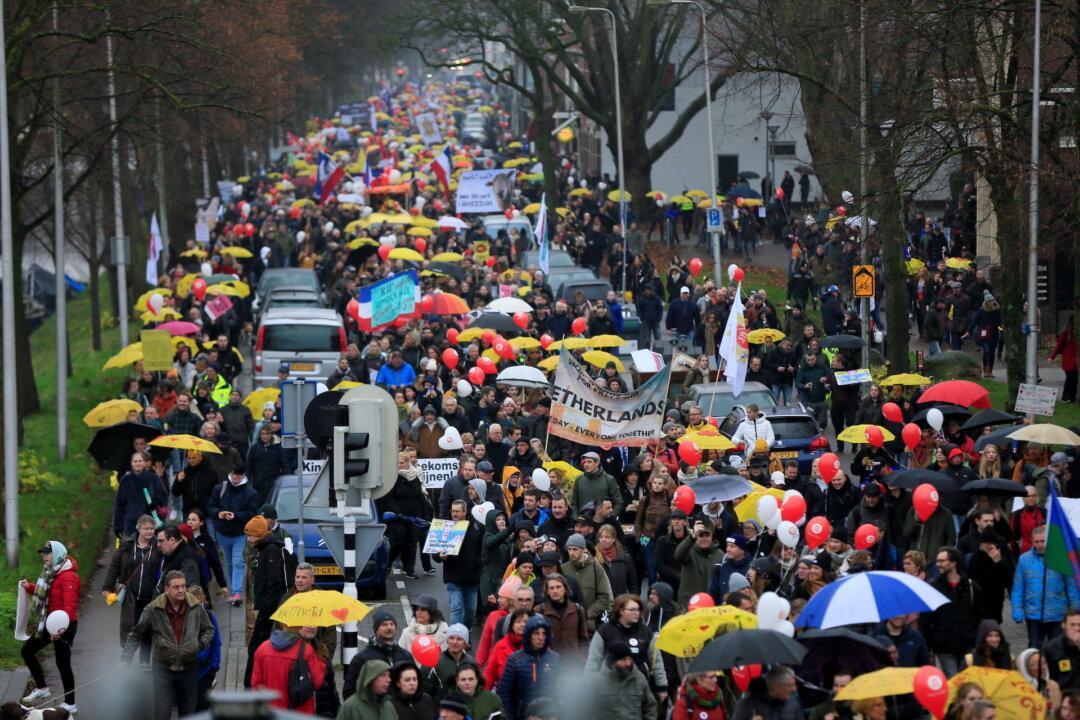UTRECHT, Netherlands—Several thousand people gathered in the central Dutch town of Utrecht on Saturday to protest against new coronavirus restrictions that came into force last weekend.
Protesters walked through the streets of the town carrying banners saying “Medical Freedom Now!” and waving Dutch flags. A heavy police presence was visible along the route of the march.





